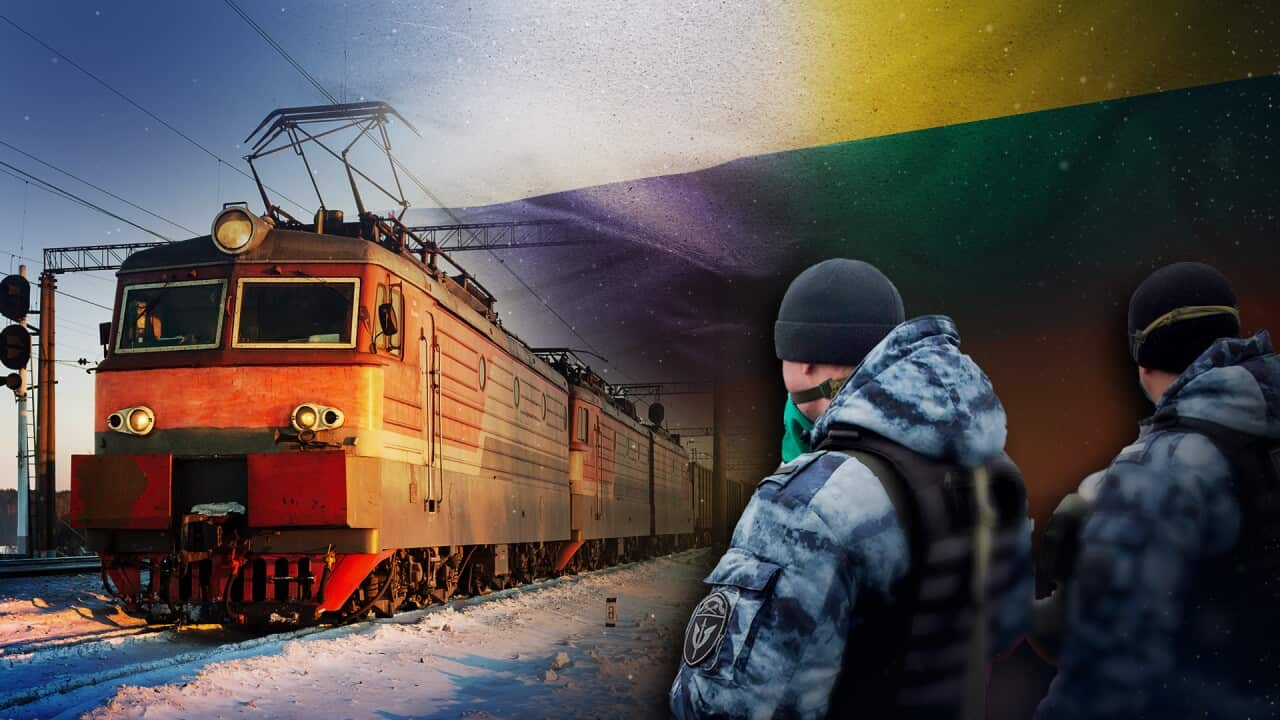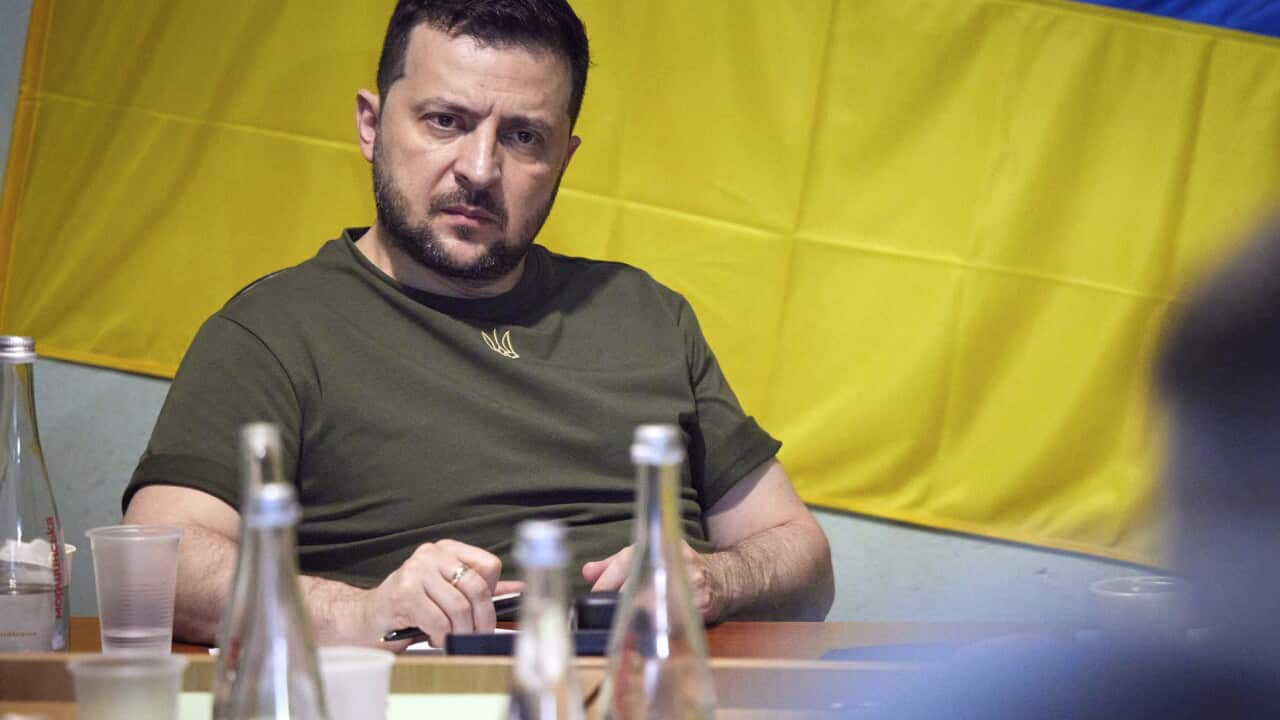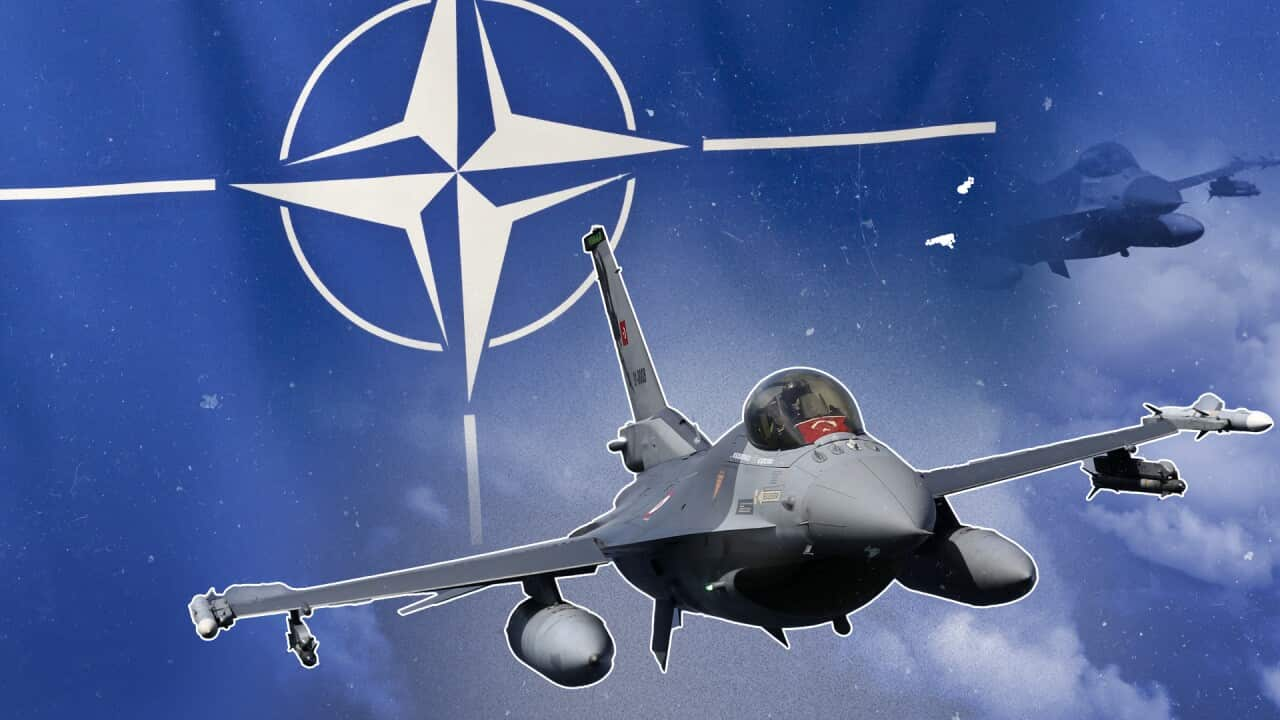Key Points
- Lithuania’s move to ban the transit of Russian goods to Kaliningrad has been met with threats of retaliation from Moscow.
- Lithuania’s status as a member of NATO means retaliation from Russia could trigger significant consequences, experts say.
Lithuania’s move to ban the transit of sanctioned Russian goods has been met with threats of retaliation from Moscow.
But military action by Russia against the Baltic state with a population of less than three million would trigger a wave of consequences, experts say.
Here's what you need to know:
Lithuania’s ban and Russia’s response
Last week, Lithuania banned the transport of Russian goods subject to European Union sanctions to Kaliningrad, a Russian exclave on the Baltic Sea surrounded by EU countries.
The ban by the EU and NATO member states, which took effect on Saturday, blocks shipments of coal, metals, construction materials and advanced technology.
Russia's foreign ministry summoned Lithuania's top diplomat and demanded the nation’s government reverse the "openly hostile" move immediately, with the ministry saying Russia "reserves the right to take actions to protect its national interests."
Lithuania, which declared itself independent from the Soviet Union in 1990, said it was required to enforce the ban under EU sanctions.
The ban comes as several EU countries push to start work on a new package of sanctions against Russia and Belarus for the Ukraine invasion and also want to grant more military support to Kyiv, according to diplomats and a draft document.
On Monday, Ukraine’s foreign minister Dmytro Kuleba said Russia had “only itself to blame” for the fallout from its invasion of Ukraine, which Moscow has said was a "special military operation" to demilitarise the country.
“Russia has no right to threaten Lithuania,” Mr Kuleba said in a statement.
“Moscow has only itself to blame for the consequences of its unprovoked and unjustified invasion of Ukraine.”
Kaliningrad’s significance
As the headquarters of Russia’s Baltic fleet, Kaliningrad has a “sizable” naval presence and is “quite important” as a Russian military base, ANU Strategic and Defence Studies Centre fellow Matthew Sussex told SBS News.
Kaliningrad was known as Königsberg until 1946 when it was claimed by the Soviet Union following Germany’s defeat in World War Two, and today has a population of around half a million people.
Kaliningrad Governor Anton Alikhanov said the Lithuanian ban would affect around half of the Russian territory’s imports.

Source: SBS News
Other countries could also look to follow Lithuania’s move to ban the transit of sanctioned Russian goods to exclaves, he said.
“Lithuania's putting in place EU sanctions on Russia as a result of the Ukraine conflict,” Associate Professor Sussex explained.
“Now, previously, they haven't done that. They asked the European Council for clarification about whether or not they should be enforcing those bans, the Europeans have said yes, so they’re enforcing them.”
Why Lithuania’s NATO membership matters
Lithuania’s status as a member of the North Atlantic Treaty Organisation (NATO) means retaliation from Russia could trigger significant consequences.
Associate Professor Rain Liivoja is an international law expert who leads the Law and the Future of War research group at the University of Queensland.
“Whatever these retaliatory measures might look like, other NATO members could certainly be expected to assist and support Lithuania in various ways, for example by cranking up the sanctions or expanding cyber operations against Russia,” Associate Professor Liivoja told SBS News.
“But should Russia's actions against Lithuania amount to an armed attack - a dangerous and foolish escalation, which hopefully will not occur - other NATO member states would be duty-bound to come to Lithuania's defence.”
This obligation, known as the principle of “collective defence” is enshrined in Article 5 of NATO’s founding document.
“Collective defence means that an attack against one ally is considered as an attack against all allies,” NATO says.
The use of force against Russia by NATO member states in response to an armed attack on a member state such as Lithuania “would be permitted as collective self-defence under Article 51 of the United National Charter”, Associate Professor Liivoyja said.
Associate Professor Sussex said “a military solution would be very ill-advised”, describing Russia’s threat as “bluster”.
“If they did do anything on the military side, then that would automatically trigger Article Five of NATO, which is collective defence,” he said.
“So an attack on Lithuania would require the rest of NATO to get involved as well. So I don't think Moscow is likely to do that.”
Instead, Associate Professor Sussex said the ban could see Russia “ramp up” the “things they do in the so-called grey zone” such as cyber-attacks and other forms of sabotage.
SA premier cites Lithuanian heritage in response to Russian sanctions
Last week, South Australian Premier Peter Malinauskas became the first Australian state leader to be sanctioned by Russia, and in response to his sanctioning.
"I'm very grateful for the fact that Vladimir Putin has paid attention to the leading role that South Australia is paying for standing up for the democratic values that we collectively as a country hold dear," Mr Malinauskas said with a smile during the National Cabinet meeting on Friday.
He pointed to his Lithuanian surname, Malinauskas, when drawing on his personal experiences against "unacceptable Russian aggression".
"My heritage - Malinauskas is a Lithuanian last name - my family knows all too well the human tragedy that can occur in the face of unacceptable Russian aggression," he said.
"I am very proud of the fact that my government has played a leadership role and I look forward to doing that in the future."
With AAP.











